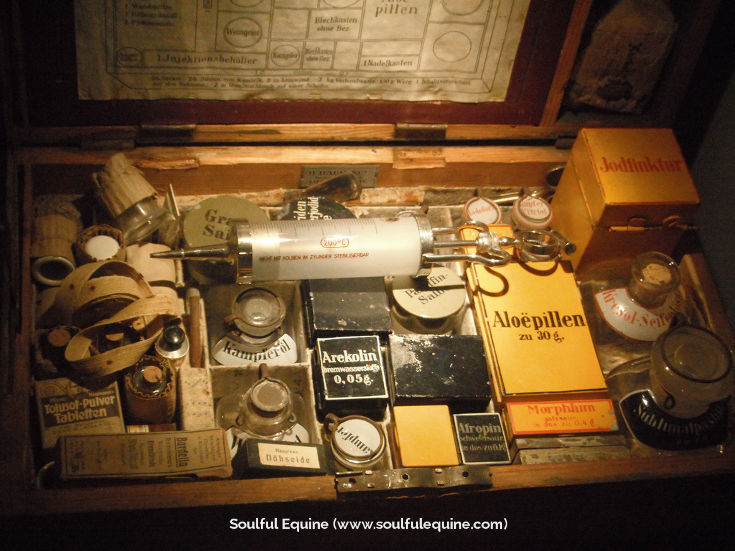
If you had known how hard it would be having a horse, would you have done it at all?
You knew you wanted a horse. You thought it would be easy or that’s what you heard, and you had the money to buy one.
Ever since you became a horse guardian it hasn’t been as easy as you thought or as others said it would be.
Your farrier informs you that he has to tranquilize your horse or he can’t do his job. He says it’s okay, and you “heard” that others were doing it.
You even heard of a big name trainer down the road who allows his farrier to tranquilize all his horses while they’re getting shod, so you think it must be okay.
Hmm… maybe that trainer isn’t such a great trainer since his horses have to be tranquilized for such a common task.
You decided that since you usually have behavior problems with your horse, you will also tranquilize her for trailer loading and clipping.
This seems to work out well for you.
Ever since you started tranquilizing your horse she behaves.
Not realizing you’re in a common pattern of monkey see, monkey do, you also tranquilize your horse when you decide to go on a trail ride because you think she’s too dangerous for you and others who are around.
Caution: Tough Love to Follow
Wow!
I hate to break this to you, but you have Tranquilize Your Horse Syndrome. The good news, for your horse, is that this condition is curable.
You may be thinking to yourself, “there’s no way that someone would tranquilize their horse like that!”
Actually, yes… they do. I mentioned some very common scenarios.
Farriers are some of the worst offenders who abuse the use of tranquilizers, and I haven’t even covered the legal aspect of the subject.
So, if you have Tranquilize Your Horse Syndrome how do you cure it?
Here’s the hard truth, if you’re using tranquilizers in place of horse development (commonly called “training”) its use is being abused.
Tranquilizing a Horse for Common Tasks
Do you use tranquilizers for any of the follow tasks?
- Riding
- Clipping
- Trailer loading
- Shoeing or trimming
- Wound treatment (depending on the type of wound)
- Sheath cleaning
- Any kind of horse training
If you do, here’s what’s going on…
You’re lacking fundamental knowledge of how horses tick and it’s important to get more education or experience.
The next time you think of tranquilizing your horse for a common horse keeping task, ask yourself, would I tranquilize my baby girl if she was crying?
Or, ask yourself, would I tranquilize my teenage boy because he has too much energy and isn’t listening to me? Some people would argue that the kid needs to be on a pharmaceutical drug of some kind.
Hopefully your answer to both those questions is NO.
A Few Tips
You may be saying, “I don’t tranquilize my horse for anything that’s related to basic horse keeping.”
Something to consider is it may be happening without your knowledge.
If you’re usually not around when your farrier shoes or trims your horse, then it’s possible he’s tranquilizing her.
This is a common practice and it doesn’t matter if you “think” your horse behaves. She may be different once the farrier is around. This is a common occurrence.
First rule of thumb is to be careful who you allow to handle your horse. If you can’t be present when your farrier works on your horse, then ask a friend to stand in for you.
If it was me, I wouldn’t hire someone like that in the first place, so it goes back to being careful who you expose your horse too.
I personally trim all the horses in my care without them being tied and without the owner holding the horse. This includes stallions, young horses, older horses, and even when it’s the horse’s first trim.
I don’t use tranquilizers. I use horse savvy – so I know it can be done.
It’s consistent across the board that the horse relaxes and it helps if I ask the owner to stand away from the horse while I trim.
Why does the horse relax?
I put my principles before the goal of the trim. In other words, I put the horse first.
There’s more to it than that but, in a nut shell, it takes understanding horses.
Most horse people don’t KNOW horses. That may sound strange, but it’s true. Most horse people only THINK they know horses and that’s why horses are tranquilized and that’s also why so many people get hurt or killed with horses.
Most natural hoof care providers will have good horse-man-ship skills – not always but usually. This is normally not the case when it comes to traditional farriers.
As a side note, I’m not advocating handing a horse over to your hoof care provider that’s never been prepared.
Here’s where the responsibilities lie:
- The farrier or natural hoof care professional is responsible for having great horse-man-ship skills and not resorting to using tranquilizers, intimidation, force or fear.
- The horse guardian is responsible for preparing the horse for the farrier or natural hoof care provider.
- The horse is responsible for standing still, calm and willing during a trim or shoeing.
Each individual involved has a mutual responsibility. This is important to understand.
If a horse has to be tranquilized for a trim or shoeing then these responsibilities are not being met.
Side Effects of Tranquilizers
Most people don’t think twice about the possible side effects of tranquilizers.
Something to consider is if you have a horse that has ever foundered or had laminitis, it’s highly likely that tranquilizing her can cause an undesirable reaction.
You may also not realize that by tranquilizing your horse you could cause the horse to become tender-footed if she’s kept barefoot.
It depends on the horse.
All drugs effect horses in different ways and tranquilizers are no different.
The tranquilizer, Acepromazine, which is often called Ace, can have adverse side effects. In male horses, both geldings and stallions, using Ace can possibly result in an adverse reaction of permanent paraphimosis (inability to retract the penis).
If this reaction occurs, partial amputation could be required – not the best result for your expensive breeding stallion, is it?
A precaution: Ace should not be used in horses dewormed with piperazine because it can lower blood pressure which could jeopardize your horse if she’s experiencing colic, shock, anemia or dehydration.
Just remember that a tranquilizer may not always cause the expected calming effect on a horse. Rather, it could cause various side effects that may result in unnecessary vet bills.
As a rule of thumb, limit the use of tranquilizers to veterinarian or dental procedures. Some dental procedures can be done without tranquilizers, so having a competent equine dentist who is also savvy with horses is essential.
Education and Responsibility
To avoid tranquilizing your horse for common horse keeping tasks, it’s important to seek out more education and take responsibility for your horse.
Horses didn’t choose to be domesticated. It’s our responsibility to help them be part of our world through horse development and understanding them from their point of view.
If you make it a priority to learn about horse psychology and improve your horse-man-ship skills, you won’t have to resort to using quick fixes like tranquilizers.
A tranquilizer just covers up a symptom of an underlying cause.
Soulful Equine stands for longevity and quality of life. In order to help your horse THRIVE, it’s important to eliminate the quick fixes and stop covering up symptoms. Instead address the underlying cause of the situation.
Create a Mind Shift
If you’re reading this article and you had no idea that there’s an alternative to tranquilizing your horse, then hopefully I’ve helped you realize the importance of seeking more knowledge.
Knowledge leads to confidence which can result in a mind shift for the betterment of horses and humans.
What Are Your Thoughts?
Have you ever experienced or witnessed Tranquilize Your Horse Syndrome? If you’ve ever had this syndrome, what caused you to break out of the pattern? If you still have the syndrome, what steps are you going to take to cure it?
Keep it soulful,
Stephanie Krahl
####
Photo Credit – original photo modified in size and to include the Soulful Equine name and URL
